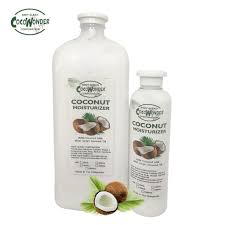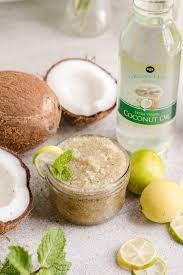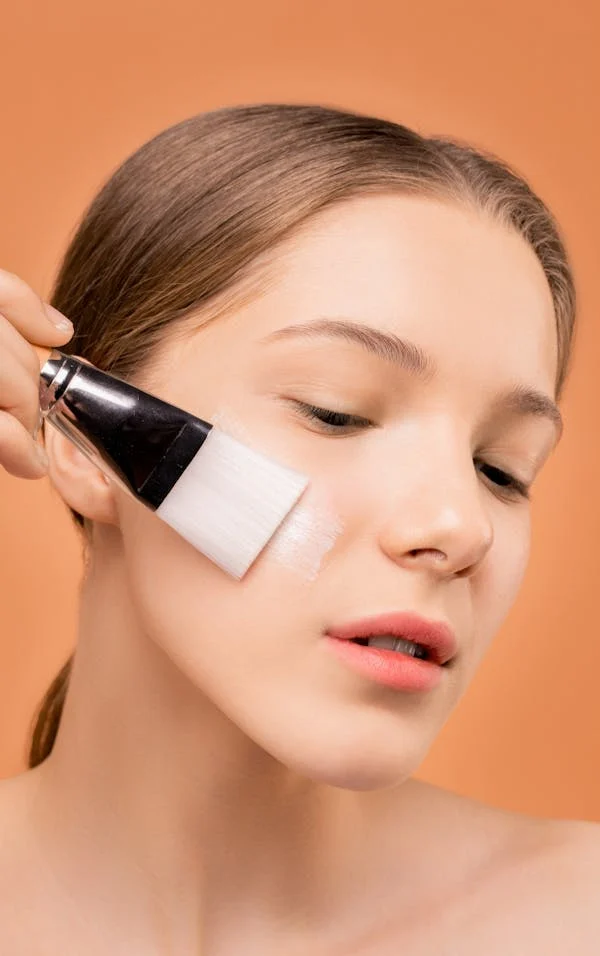Introduction
Coconut oil, extracted from the meat of mature coconuts, has been a staple in many tropical cultures for centuries. Its versatility extends beyond the kitchen, finding its place in skincare routines across the globe. This natural elixir is revered for its myriad benefits, making it a popular choice for those seeking healthy, radiant skin. This article delves into the science behind coconut oil’s efficacy, benefits, potential drawbacks, and how to incorporate it into your skincare routine.
Table of Contents
The Science Behind Coconut Oil
Coconut oil is rich in saturated fats, primarily medium-chain triglycerides (MCTs) like lauric acid, capric acid, and caprylic acid.

These components are known for their antimicrobial and anti-inflammatory properties, which can significantly benefit the skin. Lauric acid, in particular, makes up about 50% of coconut oil and is effective against harmful bacteria, fungi, and viruses. This makes coconut oil not only a moisturizer but also a protective barrier for the skin.
Benefits of Coconut Oil for Skin
1. Moisturization
Coconut oil is an excellent moisturizer, especially for those with dry or flaky skin. Its fatty acids help to lock in moisture by forming a protective barrier on the skin’s surface. Unlike many commercial moisturizers, coconut oil penetrates deeply into the skin, providing long-lasting hydration without leaving a greasy residue.
2. Anti-Aging Properties

The antioxidant properties of coconut oil help combat free radicals, one of the leading causes of skin aging. Regular application of coconut oil can help to reduce the appearance of fine lines and wrinkles, giving the skin a youthful glow. Additionally, its vitamin E content aids in skin repair and regeneration.
3. Healing and Soothing
Coconut oil’s anti-inflammatory properties make it an effective treatment for conditions like eczema, psoriasis, and dermatitis. It soothes the skin, reduces redness, and alleviates itching. The oil’s ability to promote collagen production also aids in the healing of wounds and scars.
4. Antimicrobial Effects
Due to its high lauric acid content, coconut oil has potent antimicrobial properties. This makes it beneficial for treating acne and preventing infections. By fighting bacteria such as Propionibacterium acnes, coconut oil can help to reduce the occurrence of pimples and blemishes.
5. Natural Makeup Remover

Coconut oil is a gentle yet effective makeup remover. Its emollient properties dissolve makeup easily, including waterproof mascara and long-lasting lipsticks, while nourishing the skin. Unlike some chemical makeup removers, it does not strip the skin of its natural oils.
Potential Drawbacks
While coconut oil boasts numerous benefits, it is not without its drawbacks. Some people may experience allergic reactions or breakouts, particularly those with oily or acne-prone skin. The comedogenic nature of coconut oil means it can clog pores, leading to blackheads and pimples. It is crucial to perform a patch test before incorporating coconut oil into your skincare routine to ensure it suits your skin type.
How to Use Coconut Oil for Skin
Incorporating coconut oil into your skincare routine can be done in various ways, depending on your skin’s needs and preferences.
1. As a Moisturizer

After cleansing your face, apply a small amount of coconut oil to your skin. Massage it gently in circular motions to ensure even distribution. It can be used alone or mixed with other moisturizers to enhance hydration.
2. As a Night Cream
For those with dry skin, using coconut oil as a night cream can provide intense hydration. Apply a thin layer before bed and let it work its magic overnight. You’ll wake up with soft, supple skin.
3. For Treating Acne
Mix coconut oil with a few drops of tea tree oil and apply it to the affected areas. The antimicrobial properties of both oils can help reduce acne and prevent future breakouts.
4. As a Lip Balm

Coconut oil can be used as a natural lip balm to keep your lips soft and moisturized. Apply a small amount to your lips whenever they feel dry or chapped.
5. In Homemade Skincare Products
Coconut oil can be a base for DIY skincare products, such as body scrubs, lip scrubs, and face masks. Combine it with ingredients like sugar, honey, or essential oils to create personalized treatments.
DIY Coconut Oil Skincare Recipes
1. Coconut Oil and Sugar Body Scrub
Ingredients:
- 1 cup of coconut oil
- 1 cup of granulated sugar
- A few drops of essential oil (optional)

Instructions:
- Melt the coconut oil if it is solid.
- Mix in the sugar until well combined.
- Add a few drops of your favorite essential oil for fragrance.
- Use the scrub in the shower, massaging it onto damp skin in circular motions. Rinse off with warm water.
2. Coconut Oil and Honey Face Mask
Ingredients:
- 1 tablespoon of coconut oil
- 1 tablespoon of raw honey
Instructions:
- Mix the coconut oil and honey until they form a smooth paste.
- Apply the mixture to your face, avoiding the eye area.
- Leave it on for 15-20 minutes.
- Rinse off with lukewarm water and pat your face dry.
3. Coconut Oil Lip Scrub
Ingredients:
- 1 tablespoon of coconut oil
- 1 tablespoon of brown sugar
- A few drops of vanilla extract (optional)
Instructions:
Combine the coconut oil and brown sugar in a small bowl. Add some drops of vanilla extract for flavor, if desired. Gently scrub your lips with the mixture, then rinse off with warm water. Coconut Oil and Skin Types
1. Dry Skin

Coconut oil is particularly beneficial for dry skin due to its deep moisturizing properties. It helps to alleviate dryness and flakiness, providing a smooth and hydrated complexion.
2. Oily and Acne-Prone Skin
While coconut oil has antimicrobial properties, its high comedogenic rating means it can clog pores and potentially worsen acne for some individuals. It is advisable to use it sparingly or in combination with non-comedogenic oils, and always conduct a patch test first.
3. Sensitive Skin
Coconut oil’s soothing properties can be beneficial for sensitive skin. However, those with sensitive skin should use unrefined, cold-pressed coconut oil to avoid any potential irritants that might be present in processed oils.
Choosing the Right Coconut Oil

When selecting coconut oil for skincare, it is essential to choose the right type. Virgin or extra virgin coconut oil is the best option as it is less processed and retains more of its natural nutrients. Cold-pressed coconut oil is also preferable as it is extracted without the use of heat, preserving its beneficial properties.
Conclusion
Coconut oil is a versatile and natural solution for a variety of skin concerns. Its moisturizing, antimicrobial, and anti-inflammatory properties make it an excellent addition to any skincare routine. However, as with any skincare product, it is important to understand your skin type and conduct patch tests to avoid any adverse reactions. By incorporating coconut oil thoughtfully, you can enjoy the radiant and healthy skin that this tropical treasure promises.

